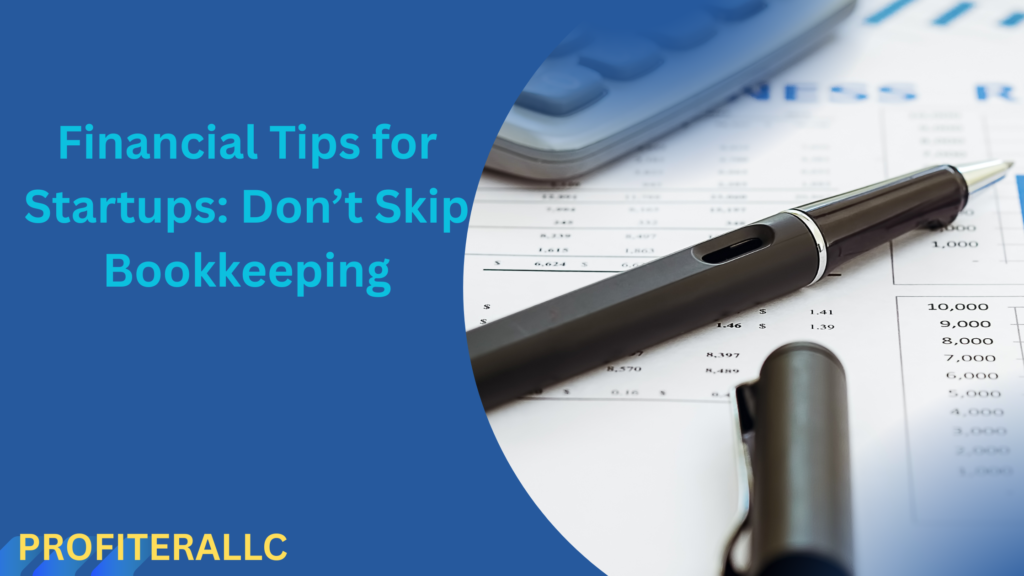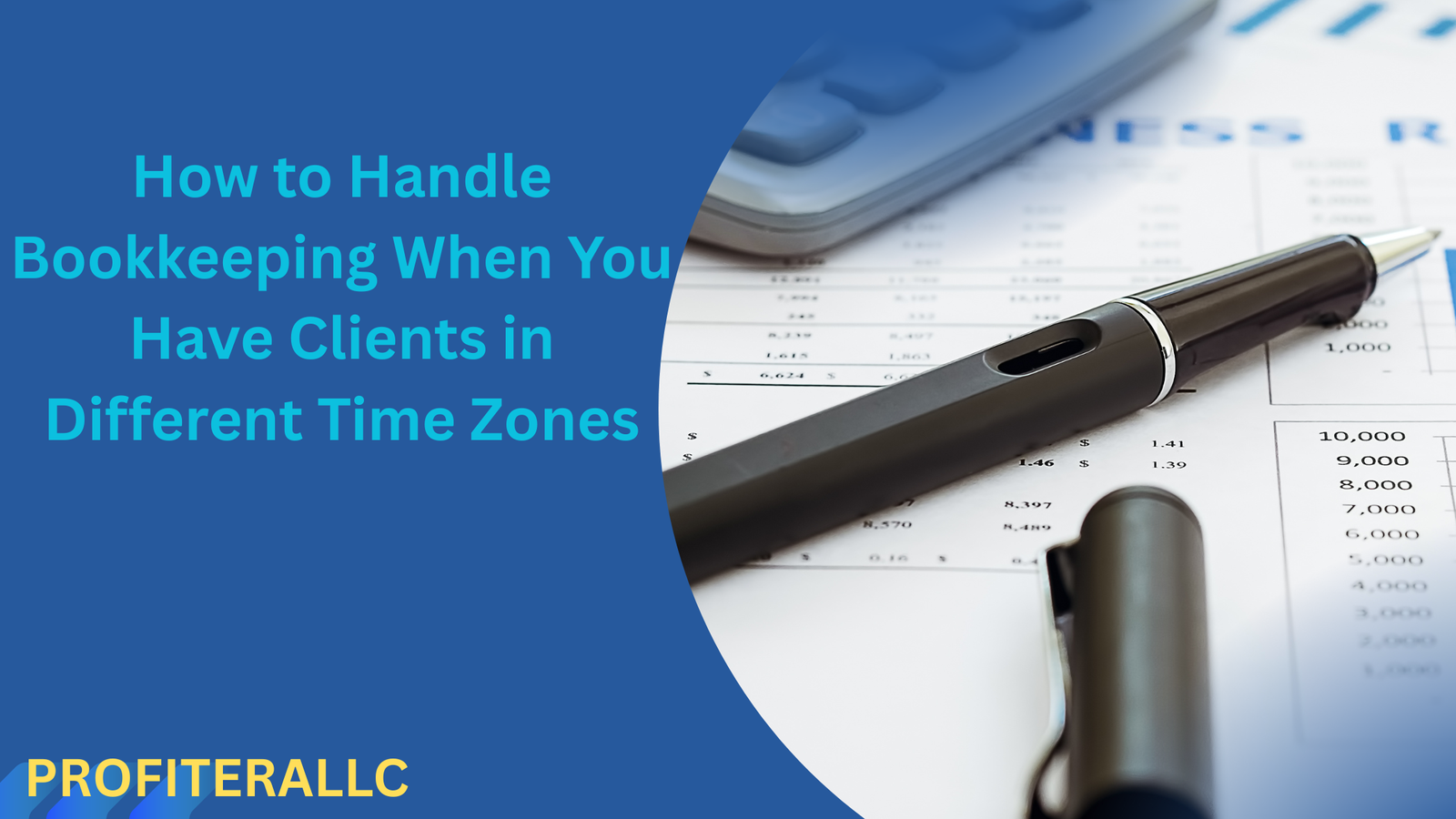
Introduction: Why Startups Can’t Afford to Ignore Bookkeeping
Launching a startup is exciting—but amidst the buzz of innovation and hustle, one area often gets sidelined: bookkeeping. It’s easy to push aside in the early days, but doing so can cost you big down the road. Proper bookkeeping is not just about recording transactions—it’s the backbone of financial clarity, legal compliance, and strategic growth.
In this guide, we’ll explore essential financial tips for startups, the risks of ignoring bookkeeping, and how early financial discipline can position your startup for success.
1. What Is Bookkeeping and Why Is It Important for Startups?
Bookkeeping is the process of recording daily financial transactions consistently and systematically. For startups, it means tracking every dollar that comes in or goes out—expenses, income, payroll, taxes, investments, and more.
Why It Matters:
- Cash Flow Control – Know exactly where your money is going.
- Investor Confidence – Clean books = trust.
- Tax Compliance – Avoid penalties or audits.
- Business Insights – Make data-driven decisions.
2. Common Bookkeeping Mistakes Startups Make
Many startups fall into these traps:
- Mixing personal and business expenses
- Not tracking cash payments
- Skipping receipts and invoices
- Relying solely on bank statements
- Not using proper bookkeeping software
- Waiting too long to set up a system
Pro Tip:
Start bookkeeping from day one, even if your revenue is minimal. You’ll thank yourself later when you scale.
3. DIY vs. Hiring a Bookkeeper: What’s Best for Your Startup?
DIY Bookkeeping:
Tools like QuickBooks, Xero, and Wave make it possible to manage books yourself—ideal for early-stage startups with tight budgets.
Pros:
- Cost-effective
- Full control over finances
Cons:
- Time-consuming
- Risk of mistakes
- Steep learning curve
Hiring a Professional Bookkeeper:
Once revenue grows or finances become complex, outsourcing bookkeeping to a professional (or a virtual bookkeeping service) can free up time and reduce errors.
Pros:
- Accuracy and compliance
- Time savings
- Insightful reporting
Cons:
- Monthly expense
- Choosing the right provider takes research
4. Key Financial Tips Every Startup Founder Should Know
1. Separate Business and Personal Finances
Open a dedicated business bank account. It simplifies record-keeping and ensures clean financial reports.
2. Track Every Expense
Even the smallest receipts add up. Log them in your bookkeeping software or app to maintain a real-time overview of your spending.
3. Set a Budget—and Stick to It
Create a realistic budget based on your business goals. Use historical data to adjust monthly projections.
4. Monitor Cash Flow Regularly
Cash flow is the lifeblood of a startup. Use cash flow forecasts and stay ahead of shortages.
5. Understand Tax Obligations
Know which taxes apply to your startup—income tax, GST, payroll taxes, etc.—and set aside money accordingly.
6. Prepare for Fundraising
If you plan to raise capital, clean books and financial statements are essential. Investors want to see you’re financially organized.
5. How to Set Up a Bookkeeping System for Your Startup
Here’s a step-by-step guide to setting up a solid bookkeeping foundation:
Step 1: Choose an Accounting Method
- Cash Basis: Record transactions when money changes hands.
- Accrual Basis: Record when the transaction occurs, regardless of payment.
Startups often begin with cash basis for simplicity but may switch to accrual for better insight.
Step 2: Select Bookkeeping Software
Top choices:
- QuickBooks Online
- Xero
- Zoho Books
- Wave (free)
- FreshBooks (great for freelancers/startups)
Step 3: Set Up a Chart of Accounts
This categorizes your transactions (e.g., income, office expenses, payroll). Most software helps set this up automatically.
Step 4: Track Transactions Weekly
Enter every sale, payment, and expense. Set a weekly schedule to stay consistent.
Step 5: Reconcile Accounts Monthly
Match your records with bank statements to spot errors or fraud.
Step 6: Generate Financial Reports
Monthly reports to review:
- Profit & Loss Statement
- Balance Sheet
- Cash Flow Statement
6. Bookkeeping and Tax Compliance: Don’t Get Caught Off Guard
Ignoring taxes can lead to massive penalties and legal trouble. Bookkeeping ensures you:
- Track deductible expenses
- File accurate tax returns
- Meet deadlines for quarterly/yearly filings
- Manage employee tax obligations (if applicable)
Use a tax professional familiar with startups to maximize deductions and credits.
7. Using Bookkeeping for Better Business Decisions
Your books are more than records—they’re insights. Use them to:
- Understand your burn rate
- Identify overspending areas
- Plan for product development
- Make hiring decisions
- Pitch investors with confidence
When financial reports are current, you gain an edge in agility and decision-making.
8. When to Hire a CFO or Financial Advisor
Startups at growth or fundraising stages benefit from part-time CFOs or financial consultants. They help:
- Create financial models
- Plan long-term financial strategies
- Navigate investor negotiations
- Avoid cash crunches
Fractional CFO services are cost-effective and tailored for startups.
9. Tools and Apps That Make Startup Bookkeeping Easier
Here are tools that simplify your financial life:
| Tool | Use Case |
|---|---|
| QuickBooks | Full-featured accounting software |
| Xero | Cloud-based bookkeeping for SMBs |
| Wave | Free bookkeeping software |
| Expensify | Expense tracking and receipts |
| Gusto | Payroll management |
| Bench | Online bookkeeping service with human bookkeepers |
Choose tools that scale with your startup.
10. Real-Life Example: A Startup That Suffered from Bad Bookkeeping
Case Study:
A promising SaaS startup grew rapidly but neglected bookkeeping. When a VC showed interest, the founders couldn’t produce accurate financials. It took 3 months to clean the books—by then, the investor had moved on.
Lesson: Bookkeeping is not an afterthought. It’s a business asset.
Conclusion: Build a Financially Fit Startup—Start with Bookkeeping
No matter your industry or size, bookkeeping for startups is non-negotiable. From cash flow management to investor readiness, it touches every aspect of your growth journey. The earlier you build a financial foundation, the better your chances of surviving—and thriving—in the startup world.
FAQs: Bookkeeping for Startups
Q1. When should a startup begin bookkeeping?
A: Immediately—ideally from the day you register the business.
Q2. What’s the difference between bookkeeping and accounting?
A: Bookkeeping is about recording transactions. Accounting interprets and analyzes those records.
Q3. Can I do bookkeeping myself as a founder?
A: Yes, with basic software. But consider outsourcing as your business grows.
Q4. How often should I reconcile my books?
A: At least monthly. Weekly is even better.






